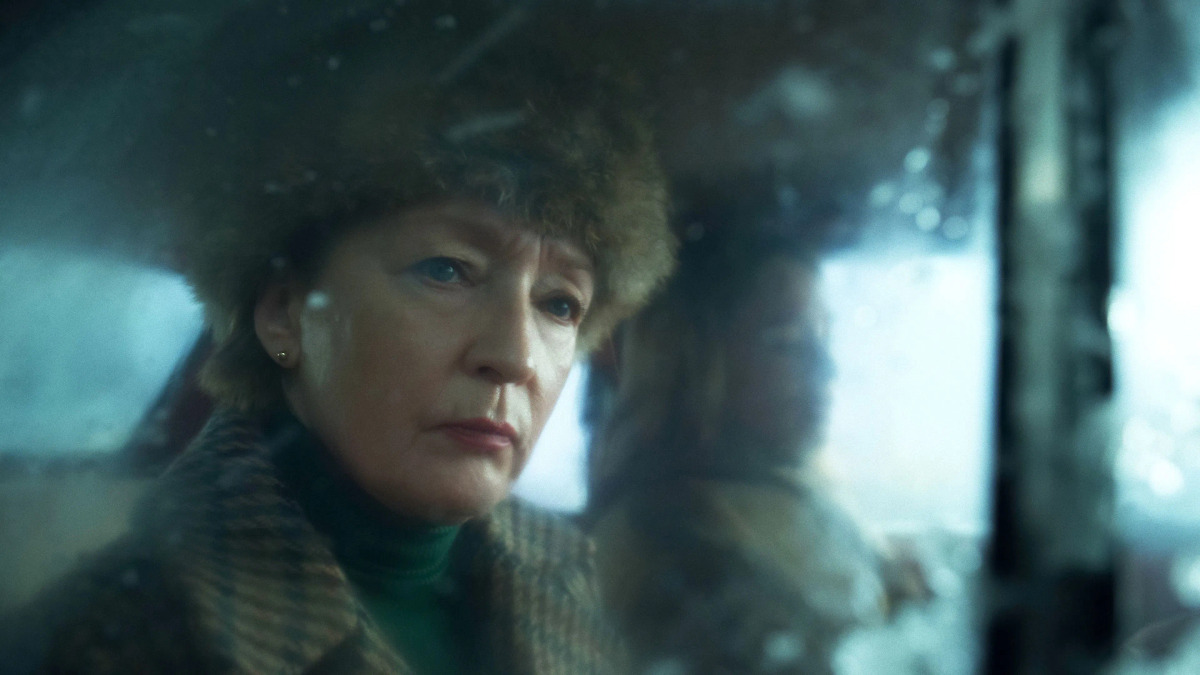As this year’s Biennale approached its conclusion, its spaces began to shift. The crowds thinned, the queues got easier, and the audiences lost their initial edge-of-seat poise, relaxing back into their seats. Soon the plaza will be empty, and the projectors will go quiet.
It’s the perfect environment from which to consider “Becoming Human” — an ode to these spaces and the way that they occupy our identities long after the film comes to a close. The debut feature of Cambodian filmmaker Polen Ly, “Becoming Human” is executive-produced by community champion Davy Chou (“Return to Seoul”), and was developed through the festival’s development programme for emerging filmmakers, Biennale College Cinema. Encouraged by workshops and a 200,000 euro grant, the aim of Biennale College Cinema is to birth new microbudget films. This year marks the 14th edition of the enterprise at the Biennale. Ly’s film was developed during last year’s edition.
At the Biennale, the screening rooms are mostly soundproof, but the abandoned Battambang theater at the centre of “Becoming Human” is anything but. The hustle and bustle of traffic and pedestrians leaks into its auditorium, and rain drips down through the collapsing roof to the seats below. The screen is loose on one side, draping to the floor — attractive but ghostlike, like a billowing vintage dress or a sculptural installation.
Into this space strolls Hai (Piseth Chhun). He used to come here as a kid, back when the films were still playing. Hai approaches this room as if it were a religious site. Making his way to the front of the stalls, he stops to reflect — singing to himself — and lights a cigarette.
He’s not alone here. A young woman, Thida (Savorn Serak), simply dressed and welcoming, appears amid the aisles. She tells Hai that she is the guardian of the theater, a role she entered into post-death. By continuing to guard the cinema, she is actively delaying her rebirth into a new life — a process that a debt-collector type at the door is keen to move along.
Both Hai and Thida’s homes are facing destruction — his pagoda, her cinema — and the consequences of the Cambodian genocide loom large in their present lives. Thida is faced with a choice: stay with the cinema, or be reborn into a new human life, with new memories.
“Becoming Human” stands apart from other beloved works about the end of cinema spaces (most pertinently “Goodbye, Dragon Inn”) in that we never see a film projected there. Instead, the films that Hai and Thida reminisce about are shared in brief clips watched on Hai’s phone, which they watch seated side-by-side in the stalls. It’s a sweetly matter-of-fact acknowledgment of our changing viewing contexts that embraces rather than judges.
Warm as their interactions are, Chhun and Serak’s dialogue carries a self-consciousness that renders its nature as a performed script occasionally too apparent — the duo’s environments feel richly lived-in, but their roles do not. It’s a quibble perhaps rooted in the film’s nature as a debut, but the thinly-drawn nature of these characters leave us at an emotional distance which becomes a greater issue in the film’s second act and beyond. She, the cinema; he, the audience — these ciphers would be compelling in short-form, but in carrying a feature they’re only buoyed by the natural chemistry of their performers.
Indeed, if the film’s first act were its own self-contained short, it would charm and satisfy — Ly’s film establishes its storytelling identity in a confident capsule exploration of place — but at the thirty-minute mark we leave the confines of the theater and set out into the world beyond. The Cambodian countryside is shot beautifully, and made meditative and magical through textured sound design that celebrates the cinema sound systems the film will be presented on.
The film becomes about her, whoever she may be or end up being. The resultant meandering is pleasant, but much of the initial intrigue is lost when the uniqueness of the film’s concept becomes diluted. Reference is made to Thida as next becoming a guardian of another space, an otherworldly being who remains in this world in human form, but these conversations don’t feel anything but ordinary and mundane. Perhaps, thinking on the film’s title, that’s the point. Whether you find these spiritual strands entrancingly elusive or disappointingly slight will depend on your openness to a cinema that is content to suggest its world’s rules rather than set them out explicitly.
“Becoming Human” wants to show you life beyond the theater, but its directionlessness grows frustrating. Nonetheless, Ly’s slow walk through memory, identity, and place evokes the sensory pleasures of Apichatpong Weerasethakul and Tsai Ming-Liang, and brushes the part of the brain that yearns to consider why we sit here and watch. A welcome picture of a changing landscape from a fresh voice seeking to make his mark on it.
Grade: B-
“Becoming Human” premiered at the 2025 Venice International Film Festival. It is currently seeking U.S. distribution.
Want to stay up to date on IndieWire’s film reviews and critical thoughts? Subscribe here to our newly launched newsletter, In Review by David Ehrlich, in which our Chief Film Critic and Head Reviews Editor rounds up the best new reviews and streaming picks along with some exclusive musings — all only available to subscribers.



